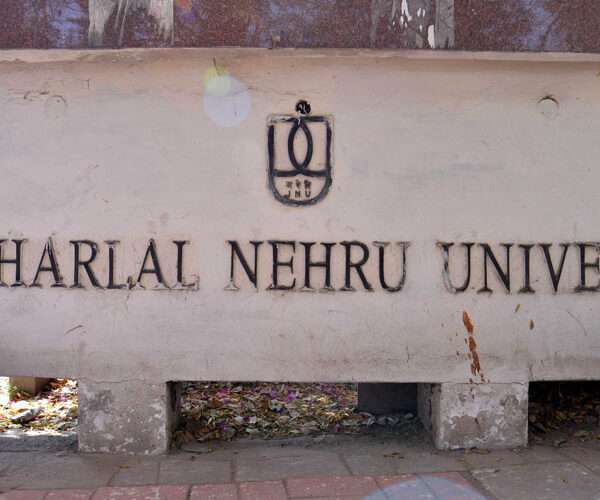The Jawaharlal Nehru University (JNU) is planning to bring back the most unique feature of its admission policy – the deprivation point model — for PhD students, Vice Chancellor Santishree Dhulipudi Pandit has said. The university had devised a deprivation point model to help students from backward regions, especially women, take admission. It was discontinued a few years back under the stewardship of the previous Vice Chancellor of the university, M Jagadesh Kumar, amid strident denunciation by a section of students. Know all about JNU Delhi like admission, placement, cut-offs & more, here.
The reinstating of the deprivation model has been a long pending demand of students and teachers. In an interview with PTI on Wednesday, Vice Chancellor Santishree said that the varsity is reintroducing the deprivation point model for “inclusivity and equity” on the campus. “We are going to bring back the deprivation point for PhD students, because our reserved categories seats don’t get filled up. I come from a reserved category, would like to see it implemented … especially for women from the reserved category. We want inclusivity and equity,” she said. “We are the only university in the country which gives these deprivation points and that is why we have become unique,” she added.
Vice Chancellor Santishree said the varsity is looking to adopt hybrid learning and working on going international to supplement its income, which, she added, is needed to offset some of the Rs 130 deficit the varsity is suffering from. “We want to go for e-learning, or online learning, because we have a deficit of Rs 130 crore and we can’t expect everything to come from the Centre,” she said. “We want to make JNU self-reliant. JNU runs some of the best programmes, so we will have hybrid learning. We want to go international, we are getting a lot of requests from the foreign universities.” On implementation of the National Education Policy 2020 (NEP), the VC said that the varsity has separated the School of Indian languages from the School of Language and has also initiated the process for a multiple entry and exit system, which will allow the students to drop out and rejoin the course even after a few years.
“We have already started implementing it (NEP)… in Indian languages, also a multiple entry and exit system, which is very good for students. We separated the school of Indian languages from the School of languages. We are also concentrating on developing very good faculty for Indian languages,” Vice Chancellor said. Asked about an increased reporting of sexual harassment incidents from campus, Santishree contended that her administration has been “very proactive” in investigating these types of cases. “Whatever cases come in the ICC we take them forward,” she said.
The ICC, or the Internal Complaints Committee, was formed by the JNU administration in 2017 to deal with sexual harassment and related cases. The VC said that the university is also planning to install CCTV cameras in the women’s hostel and corral the campus with a 10-feet high wall. The administration has floated a new security tender, she said, to replace the agency currently in charge of security of the campus.
Students and teachers have in the past many times demanded the administration to hire a new security agency. “We have put up a new security tender. We have a committee, and the security has been reviewed. A lot of incidents of theft are taking place on the campus, we will change it. It should be done in a month or a month-and-a-half,” the Vice Chancellor said. “Our campus is spread over 2,000 acres. We have a broken wall. With a 130 crore deficit, we are looking at CSR and other sources to get the damaged wall repaired — 10 feet at least. So that you know people won’t jump over,” she said.

